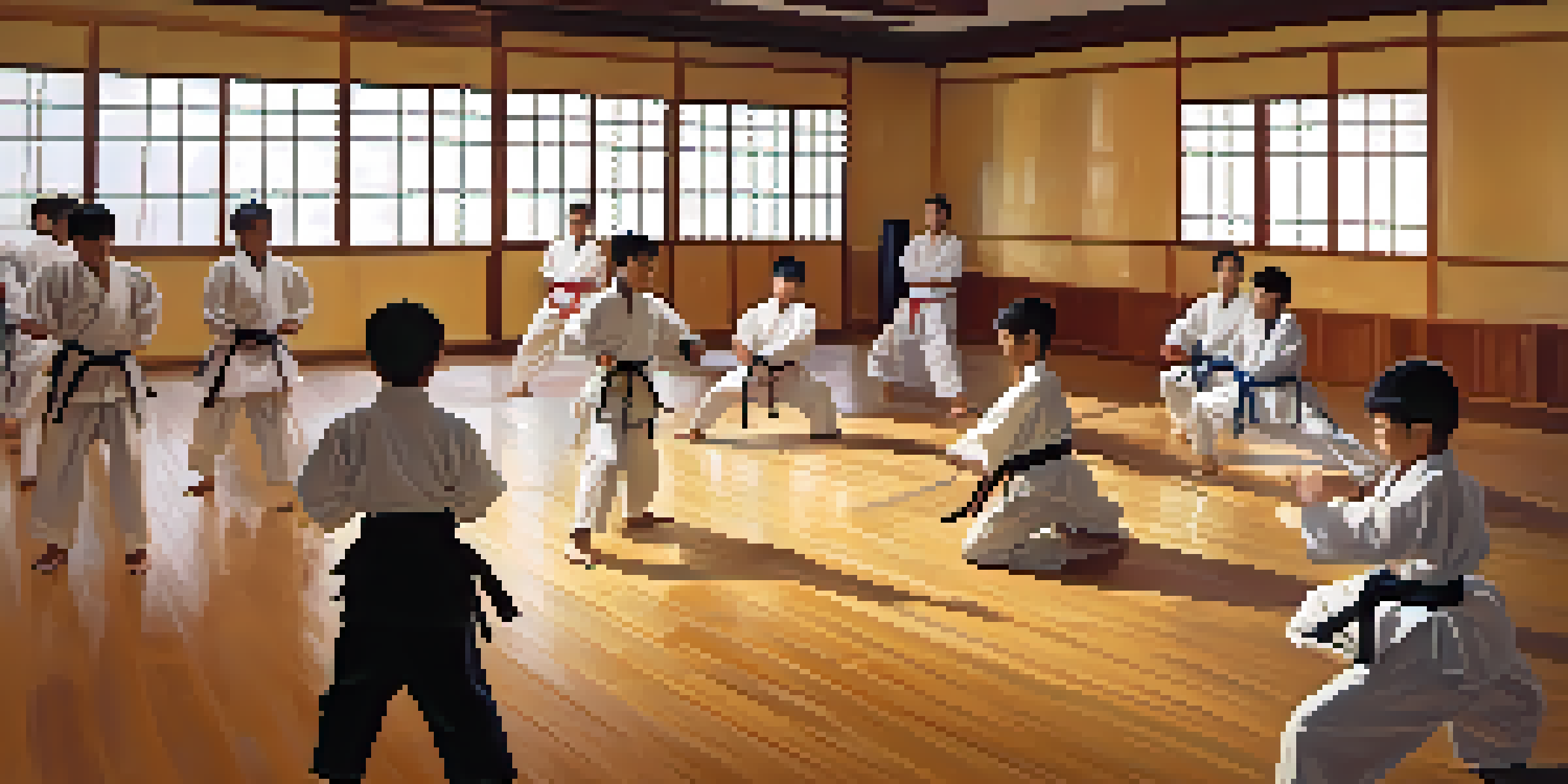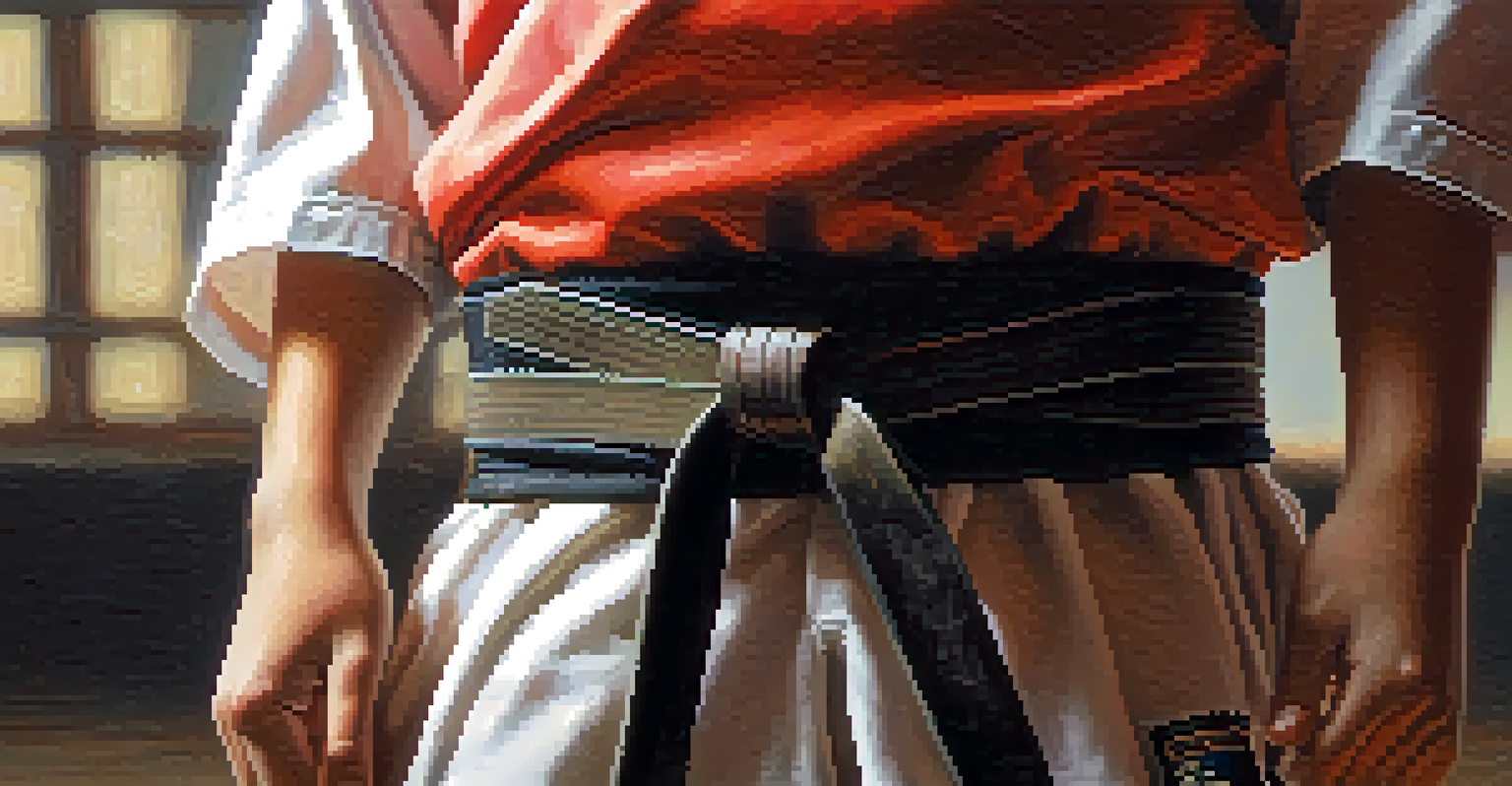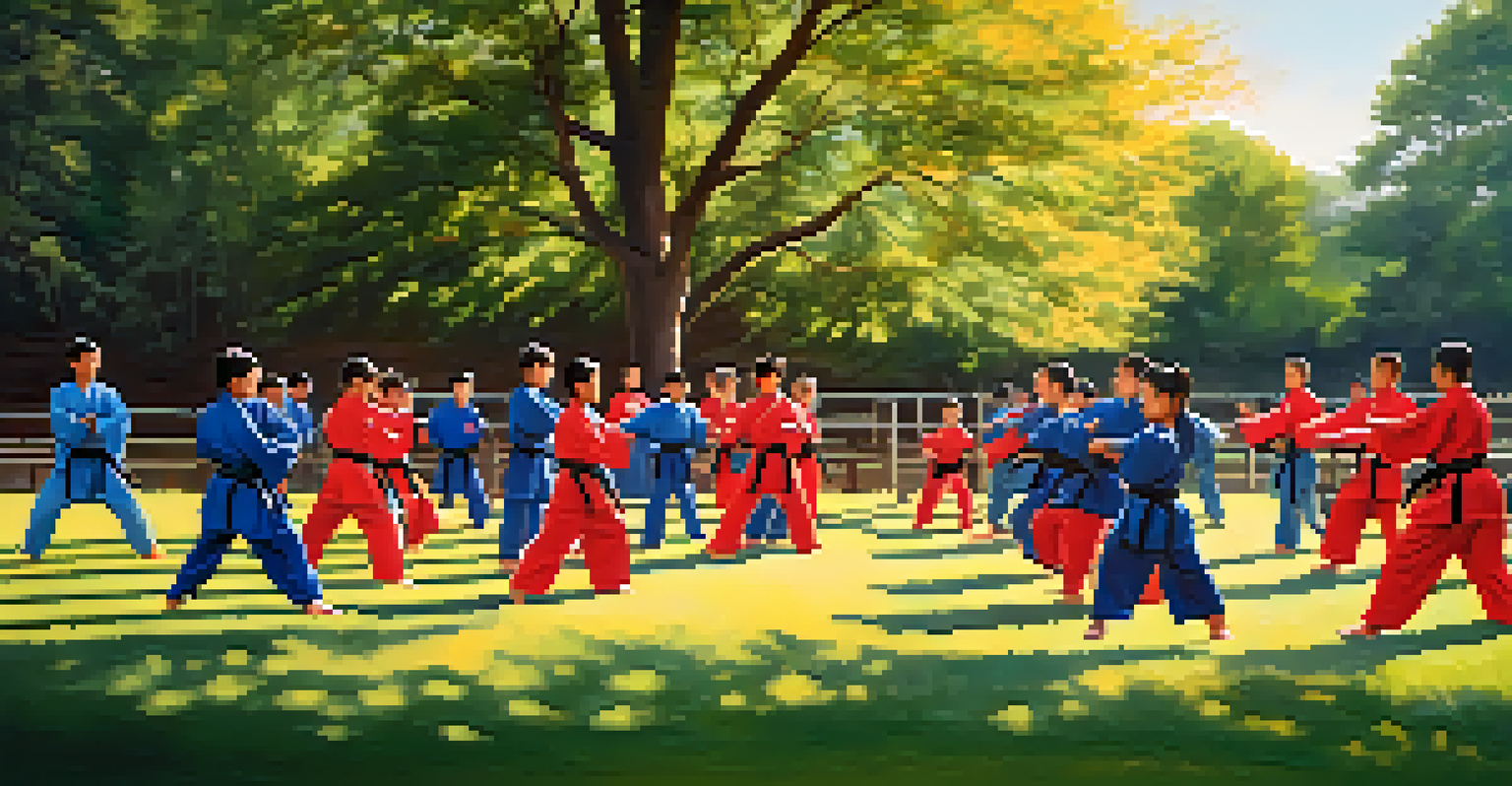How Martial Arts Training Boosts Self-Confidence in Youth

Understanding Self-Confidence in Youth
Self-confidence is the belief in one's abilities and decisions. For youth, this can often be a rollercoaster ride, influenced by peers, academics, and social situations. It's essential for mental well-being and success in various life aspects, including school and relationships.
Believe you can and you're halfway there.
Many young people struggle with self-doubt, which can hinder their growth and potential. Building self-confidence doesn’t just happen overnight; it takes consistent effort and positive experiences. This is where martial arts training can play a pivotal role.
Through martial arts, youth learn to overcome challenges and gain a sense of accomplishment. This journey often leads to a transformation in how they view themselves and their abilities.
The Role of Discipline in Martial Arts
Discipline is a core principle in martial arts that directly contributes to building self-confidence. When young practitioners follow routines and respect their instructors, they cultivate a sense of order and focus in their lives. This structured environment helps them realize their potential.

As they progress through different techniques and belt levels, they learn that hard work pays off. This realization nurtures a growth mindset, showing them that effort leads to improvement. It’s a powerful lesson that can translate to other areas, like academics or sports.
Martial Arts Boosts Self-Confidence
Through discipline and achievement, martial arts helps youth build a strong belief in their abilities.
Moreover, the discipline learned in martial arts encourages consistency. This stability in training reinforces their belief that they can achieve their goals, fostering an inner strength that enhances self-worth.
Physical Fitness and Its Impact on Confidence
Physical fitness is another vital aspect of martial arts training that boosts self-confidence. As youth engage in regular training, they experience improvements in strength, flexibility, and overall health. Feeling physically strong often translates into feeling mentally strong.
Success is not final, failure is not fatal: It is the courage to continue that counts.
When young individuals see their bodies becoming more capable, it can lead to a positive self-image. This newfound appreciation for their physical abilities helps them to approach challenges with a more confident mindset.
Additionally, martial arts often emphasizes self-defense techniques. Knowing they can protect themselves instills a sense of security, allowing youth to navigate social situations and life challenges with greater assurance.
Building Resilience Through Sparring
Sparring is a unique aspect of martial arts that teaches resilience. In a controlled environment, students face opponents and learn to adapt to various situations. This hands-on experience helps them develop coping strategies for dealing with setbacks.
As they spar, youth encounter real-time challenges, which can be daunting but also empowering. Each encounter teaches them how to bounce back, reinforcing the idea that failure is part of growth and improvement.
Discipline Fosters Growth Mindset
The structured environment of martial arts instills perseverance and focus, encouraging youth to tackle challenges.
Through sparring, young martial artists learn that perseverance is key. This resilience boosts their confidence, as they understand that they can face adversity both in and out of the dojo.
Social Interaction and Team Spirit
Martial arts training is often done in groups, fostering a sense of community. This environment allows youth to interact with peers who share similar goals, creating bonds that can enhance their social skills. As they work together, they build friendships and a support network.
The camaraderie formed during training helps combat feelings of isolation that many young people experience. Being part of a team encourages them to communicate openly and share experiences, further boosting their confidence.
Additionally, celebrating each other’s successes during training reinforces a positive atmosphere. This team spirit teaches youth that they are not alone in their journeys, which can significantly strengthen their self-esteem.
Setting and Achieving Goals
Martial arts training is centered around setting and achieving goals, whether it's mastering a new technique or earning a new belt. This process teaches youth the importance of working hard and staying committed. Each small success builds upon the last, creating a cumulative effect on their confidence.
As they reach these milestones, they experience a sense of accomplishment that reinforces their belief in themselves. This achievement mindset can spill over into other areas, encouraging them to set and pursue goals in academics or personal interests.
Social Skills and Community Support
Training in groups promotes camaraderie and boosts social skills, helping youth feel connected and valued.
Moreover, celebrating these milestones within the dojo creates a culture of recognition. When youth receive praise for their efforts, it further solidifies their self-worth and encourages them to strive for even greater heights.
Life Skills Learned Through Martial Arts
Martial arts training imparts valuable life skills, such as respect, focus, and perseverance. These skills go beyond the dojo and into everyday life, helping youth navigate various challenges. With a strong foundation in these principles, they approach situations with a more confident attitude.
For instance, the focus required during training translates to improved concentration in school. As they learn to prioritize and manage their time effectively, they become more adept at handling academic pressures, boosting their self-confidence.

Furthermore, the respect learned in martial arts cultivates better relationships with peers and authority figures. This respect fosters a positive self-image, as youth understand the importance of treating others well, which ultimately reflects back on them.
Conclusion: The Transformative Power of Martial Arts
In conclusion, martial arts training can be a transformative experience for youth, significantly boosting their self-confidence. Through discipline, physical fitness, resilience, and social interaction, young practitioners develop a strong sense of self-worth. Each lesson learned on the mat can ripple into various aspects of their lives.
The skills acquired during martial arts training empower youth to face challenges head-on, fostering a mindset of growth and perseverance. As they grow physically and mentally, they emerge as more confident individuals ready to tackle life’s hurdles.
Martial Arts Boosts Self-Confidence
Through discipline and training, martial arts helps youth develop a strong belief in their abilities.
Ultimately, martial arts is about more than just fighting techniques; it's about cultivating character. The self-confidence gained from this practice can set the foundation for success in all areas of life, making martial arts a valuable pursuit for youth.